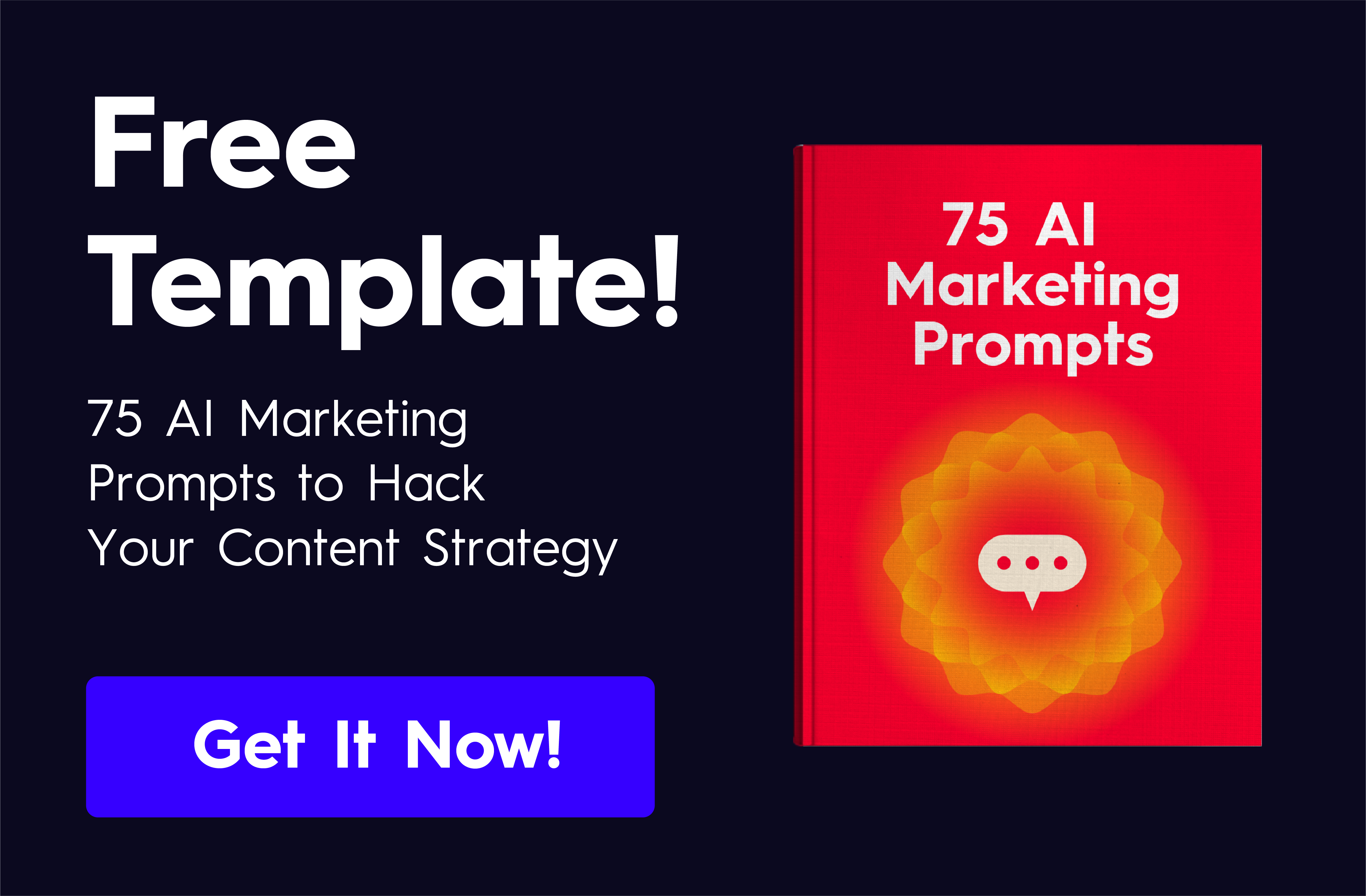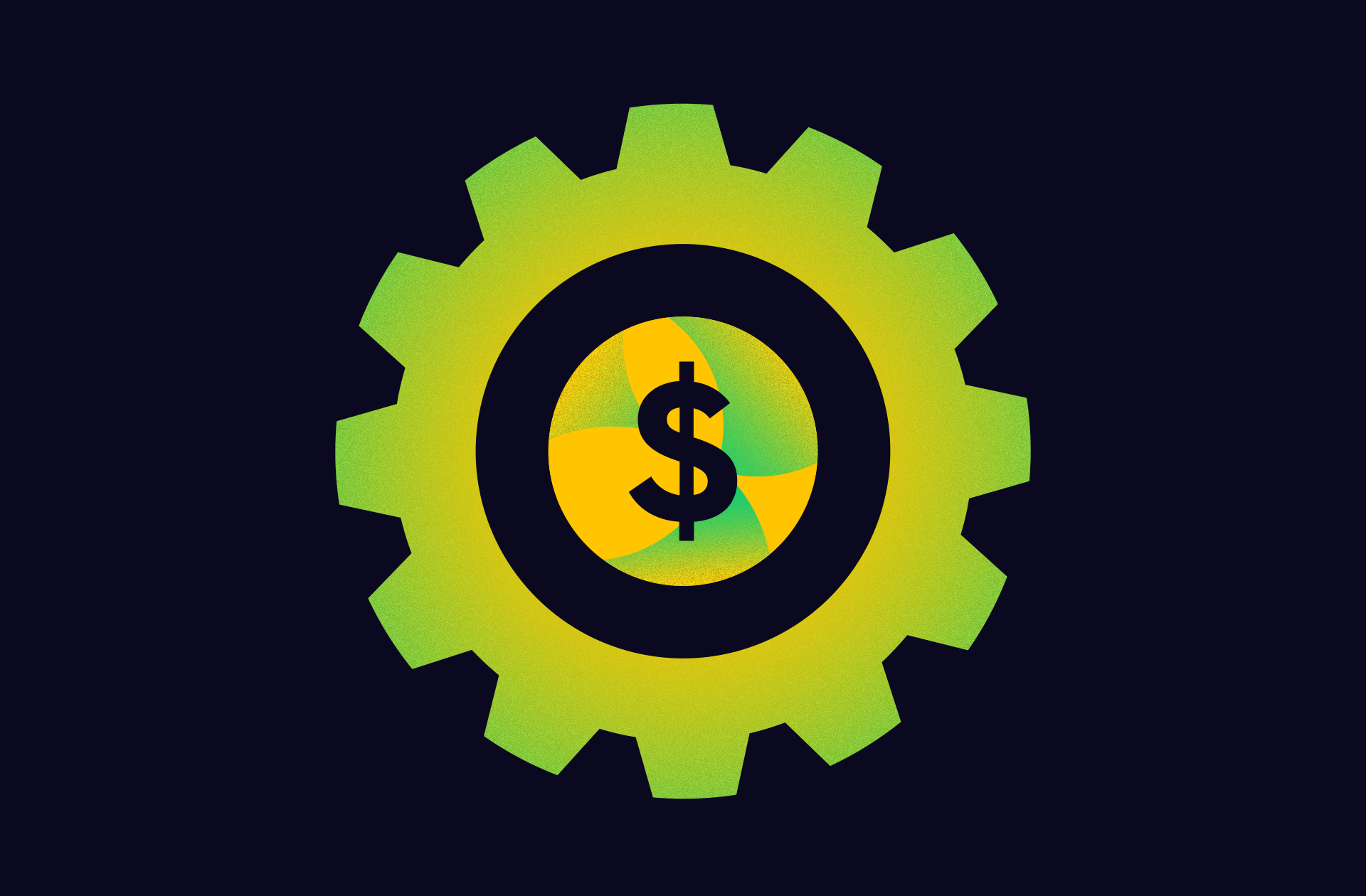Let’s be honest. AI is the number one thing on marketers’ minds these days—for good reason. The tech has sent shockwaves across industries, eliciting everything from excitement and intrigue to total fear and panic. But what does AI really mean for marketers? Is your job safe? Will marketing even exist in the future?
These questions have come up more and more in our professional conversations, so now is a good time to address them. Whether you’ve welcomed AI with open arms or avoided using a single tool thus far, here’s what you need to know about how AI will affect marketing—and what you can do to prepare.

Will AI Replace Marketers?
This is the number one question on everybody’s mind. Fortunately, the answer is no. While it will change how you work, the tasks you do, and the things you focus on, it will not replace marketers. Like any new tech, it is evolving, learning, and growing, but the biggest thing to remember is that marketers market to humans—humans with feelings, frustrations, and ever-changing tastes. You will always need a human to direct AI and judge whether its output actually resonates with an audience.
Thus, AI will not replace marketers. However, in the future, marketers will function more as a bridge between AI and their audience.
How Will AI Affect Marketing?
We are already seeing widespread adoption of AI. (According to the Content Marketing Institute, 72% of B2B marketers are already using generative AI.) While AI can and will continue to perform a variety of tasks, the overall benefits will be significant and profound in many ways.
- Increased productivity: AI’s biggest strength is its ability to perform and automate repetitive tasks, eliminating many of the time-consuming duties marketers handle every day. This can include data analysis, reporting, scheduling, ideating, writing, scheduling, monitoring, and more. Although these tasks support a healthy marketing operation, they can be tedious, boring, and draining. AI can take these things off your plate, freeing up brain space to focus on big-picture strategies and innovative ideas.
- More personalization: Personalization is one of the best ways to make your marketing more effective. (According to McKinsey research, personalized marketing can reduce customer acquisition costs by as much as 50%.) AI can help optimize the buyer journey by implementing more personalization at every touchpoint. Whether it’s analyzing customer data to create custom content and offers, tailoring emails, or creating chatbots to provide more personalized service, AI can help improve practically every interaction with a potential customer.
- Better targeting: While personalization is powerful, you can only tailor those experiences if you truly understand your audience. In the past, creating personas required a serious lift to research who your audience is, what they need, what they like, etc. AI can eliminate much of that work via data analysis, helping to build better and more accurate audience segments. It can also optimize campaigns in real-time to ensure that content is reaching the right audience. This saves time, money, and headaches—while producing a better result.
- Better decision-making: One of AI’s best traits is its ability to synthesize data and generate predictive analytics. This benefits every single aspect of marketing. Not only can it process data sets instantly but it can also integrate data from multiple channels to provide a holistic view of the customer journey, helping you make decisions about where and how to target your audience effectively. This means every decision you make will be better informed, increasing the likelihood of your success.
- Higher ROI: ROI has historically been one of the biggest struggles for marketers. AI’s ability to perform so many tasks, optimize, and react in real time means that you will get higher ROI for almost every action you take. It also makes success easier to measure and demonstrate, helping you secure more budget (another issue that has traditionally plagued marketers).
- Better Brand Experiences: If you want to attract and retain customers, you need to build a seamless brand experience from start to finish. AI will help you do this at every touchpoint. Again, whether it’s personalizing campaigns or providing instant answers via a chatbot, AI can eliminate many of the roadblocks that cause customers to abandon the journey. This has huge implications for your business’ longevity and success.
In short, AI will absolutely transform marketing in the next few years, but that is not necessarily something to fear. As the technology evolves and more capabilities are introduced, humans will still be required to keep it all in check.
AI + Humans: The Winning Combination
While there are plenty of ways that AI can support marketers, we are also seeing the side effects of relying solely on AI play out in real time.
For example, as AI-generated content has flooded the market, it has diluted the idea of “thought leadership,” filled the Internet with regurgitated fluff, and squeezed in on the hard-won SEO rankings that many marketers have been working (for years) to achieve. (That’s not to mention the ongoing concerns about plagiarism.)
Now that the public has been bombarded by this generic (and often identical) content, they are desperate for quality content that goes deeper. To be successful, you will need to infuse more human perspective, deeper analysis, examples, and reliable data or case studies that demonstrate your real-life experience. This is the content that people will trust (and it is the type of content that Google’s AI-assisted search engine SGE will reward). Marketers who rely on AI for all content creation will ultimately lose, as will marketers who only rely on human output, as they may struggle to keep pace with competitors.
The truth is that human and AI collaboration is the future.
Essentially, the best results will come when you combine the power of AI with a human filter. For example, you might use AI to generate an article outline but infuse it with your perspective, examples, and real-life experience. You might use AI to generate subject line ideas for various audiences, but you can make them more relatable by adding insider slang.
The same concept will apply to practically everything you use AI to assist you with. The tech will always require human guidance, so it’s crucial to learn to work with it—and be aware of its weaknesses.
How to Stay Ahead of the AI Curve
We understand why some marketers may be hesitant to adopt AI, but that hesitancy will only put you behind your competition. Instead, be open and interested in learning and experimenting. (We guarantee you’ll be surprised by the results). But if you’re not sure where to start, here are a few steps you can take now.
- Explore use-cases. AI can do more than you can imagine. See our Everything You Need to Know About AI guide to learn about how you can apply it across your organization. This can help you see the bigger picture and think about how AI may support your work.
- Review your tech stack. What tools are you currently using? What are the biggest pain points that AI tools might solve? Your current tools probably already have introduced an AI element. If not, pick one or two tools to experiment with and bring your findings to the rest of your team.
- Start training your tools. AI needs to be trained to serve you better. The more information you can feed it, the better its results will be. You can start with these 75 prompts to build an AI marketing strategy.
Of course, AI is its own beast. If you’re not sure how to work with the tools or how to incorporate them into your strategy, you might want to turn to an expert. (If you’re looking for a partner, find out more about what it’s like to work with us.) But the most important thing is to stay educated and up-to-date on best practices, AI issues, and more. You can start by subscribing to our Best Story Wins podcast, where we’ll continue to share our thoughts on the evolution of AI and how you can put it to work.
Until then, we’ll leave you this quote.
“Change is the essence of life; be willing to surrender what you are for what you could become.”
—Reinhold Niebuhr
And, yes, we did ask AI to find that quote for us. See how that works?





